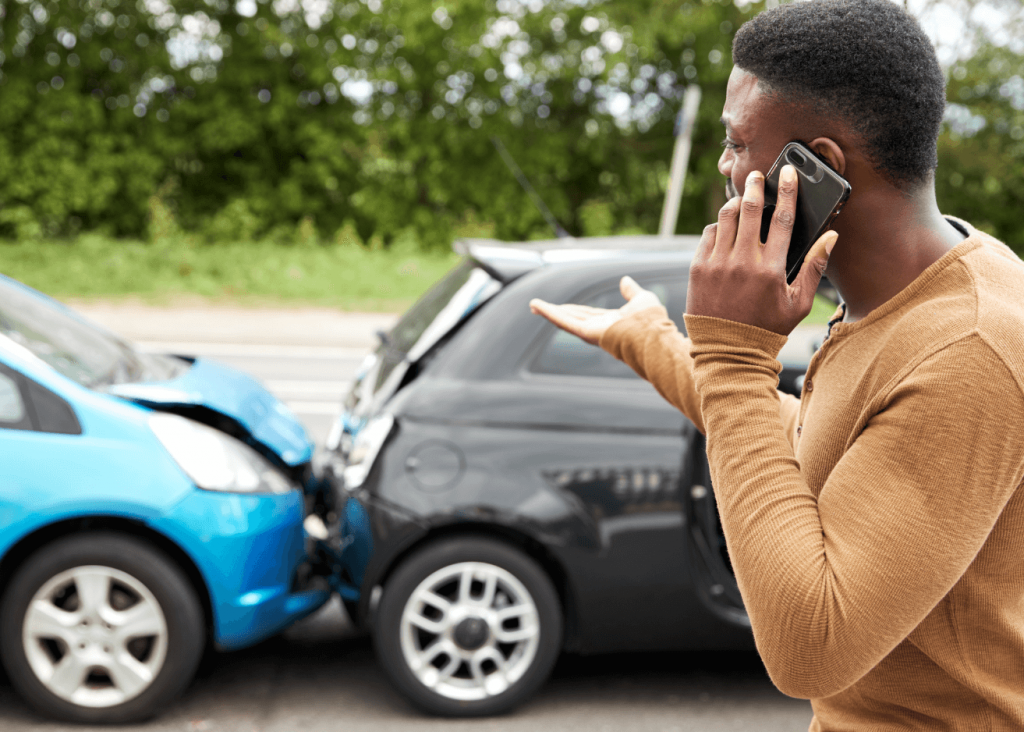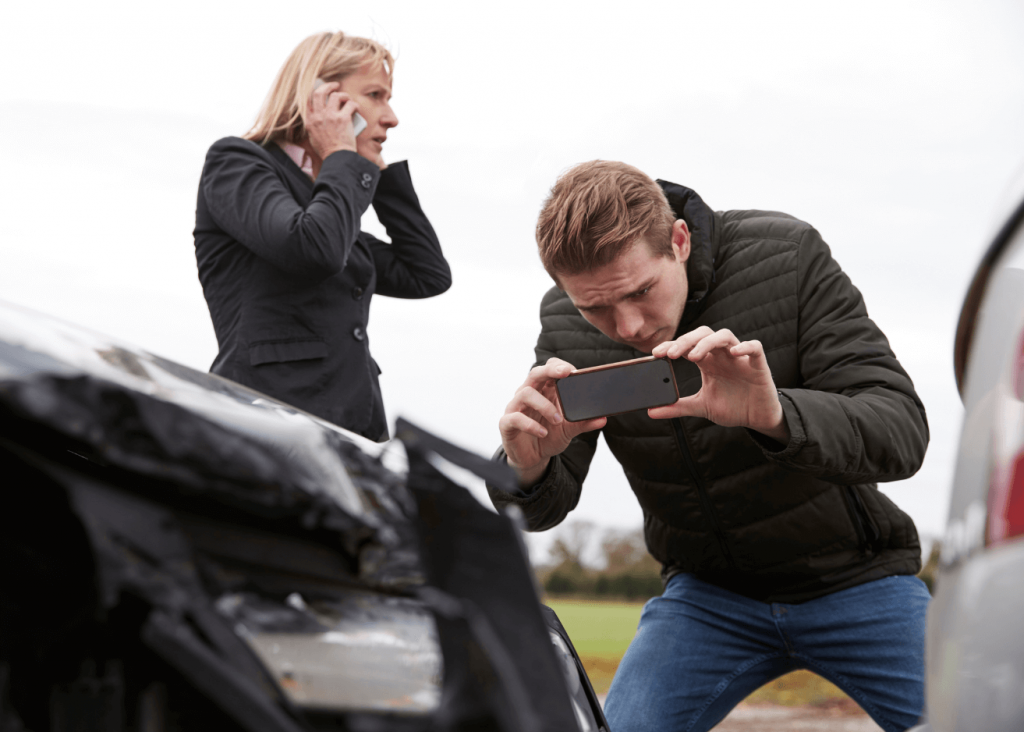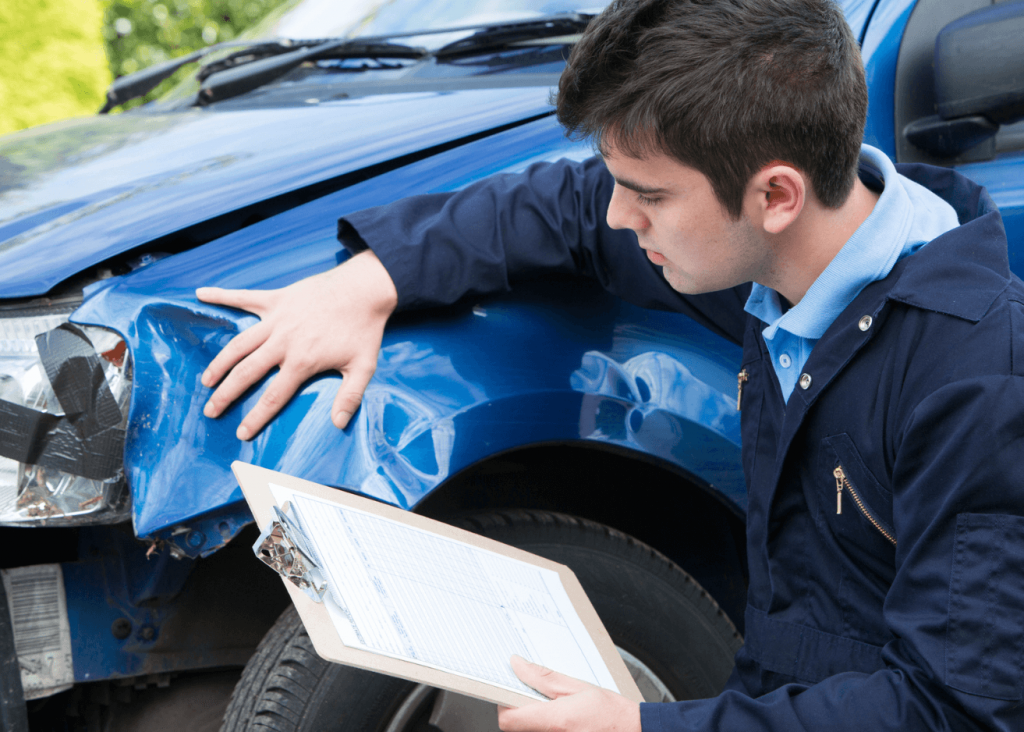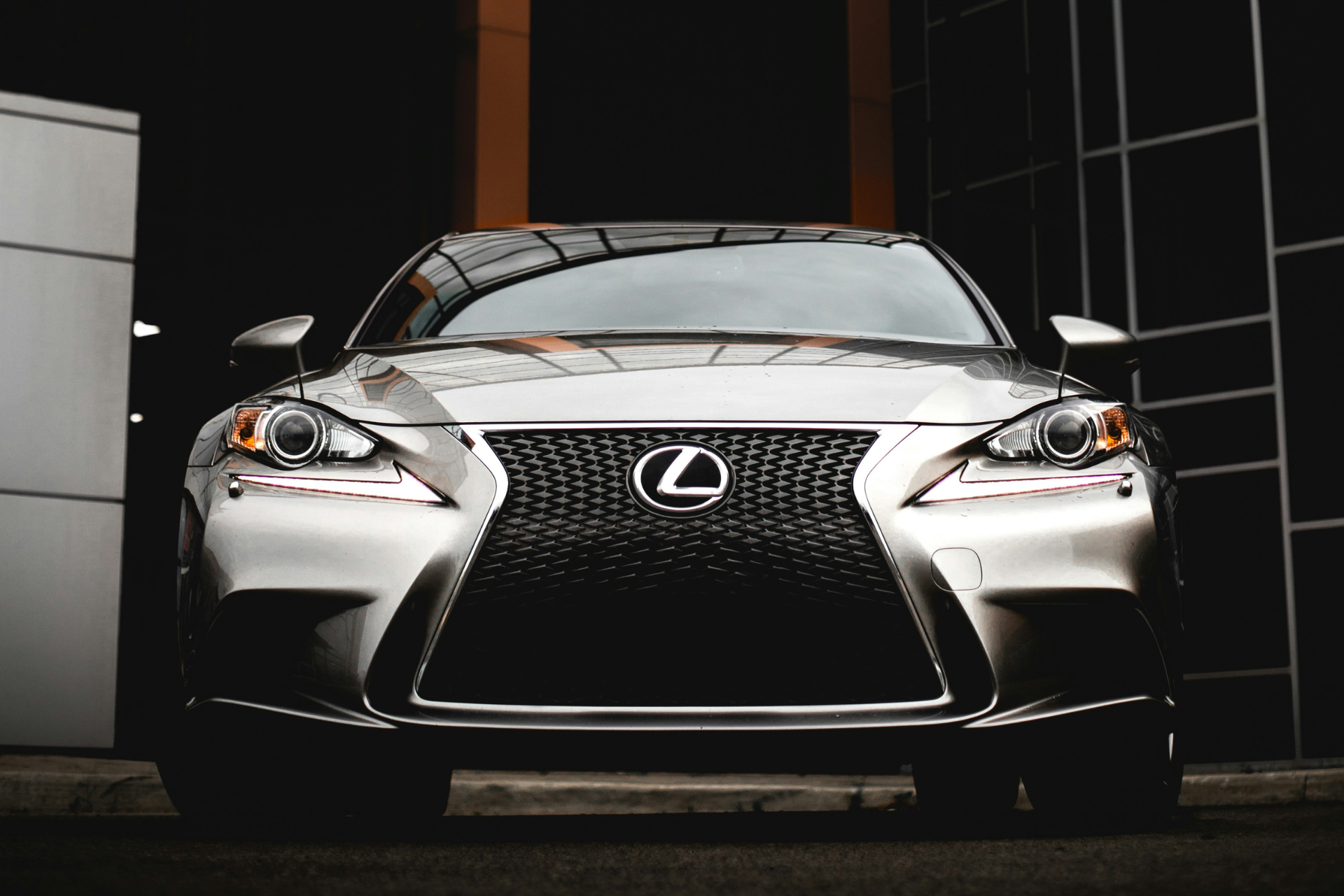So you’ve just had a fender bender in the City of Angels. Your heart’s racing, your hands might be shaking a bit, and you’re probably thinking, “Great, this is exactly what I needed today.” Take a deep breath. We’ve all been there, and honestly, it happens more often than you’d think on LA’s busy streets.
The good news? Most fender benders are minor, and if you know what to do, you can handle this like a pro. Let’s walk through it step by step, so you’re not standing there scratching your head while traffic builds up behind you.
Step 1: Stay Calm and Check for Injuries
First things first – are you okay? Is everyone else okay? This might sound obvious, but adrenaline can mask pain, so take a moment to really assess yourself and your passengers. If anyone’s hurt, even slightly, call 911 immediately. Your health is way more important than any car damage.
If everyone seems fine, you can move on to the next steps. But remember, if you feel any pain later, don’t hesitate to see a doctor. Sometimes injuries from accidents don’t show up right away.
Step 2: Move to Safety (If Possible)
If your car is drivable and you’re not blocking traffic, try to move to the side of the road. Turn on your hazard lights – this is LA, after all, and drivers here aren’t exactly known for their patience. If you can’t move your car, that’s okay. Just make sure you’re visible and safe.
Get out of your vehicle carefully, especially if you’re on a busy street. LA traffic doesn’t mess around, and you don’t want to turn a minor fender bender into something much worse.
Step 3: Call the Police (When Necessary)

Here’s where it gets a bit tricky in LA. You’re required to call the police if:
- Anyone is injured
- There’s significant property damage (usually over $1,000)
- The other driver seems impaired
- The other driver doesn’t have insurance or a valid license
- You suspect the other driver might flee the scene
For minor fender benders with no injuries, LAPD often won’t come out unless there’s a traffic hazard. But calling never hurts – they’ll let you know if they’re coming or if you should handle it yourself.
Step 4: Exchange Information
This is the big one. You’ll need to swap details with the other driver, and trust me, you want to be thorough here. Get:
- Full name and contact information
- Driver's license number
- Insurance company and policy number
- License plate number
- Make, model, year, and color of their vehicle
- Location of the accident
And here’s a pro tip: don’t just trust what they tell you. Actually look at their license and insurance card. People sometimes get flustered and give wrong information by accident.
Step 5: Document Everything

Your smartphone is your best friend right now. Take photos of:
- Both vehicles from multiple angles
- The accident scene
- Any street signs or traffic signals
- License plates
- The other driver’s insurance card and license (with their permission)
- Any visible damage
Don’t forget to write down or voice-record your version of what happened while it’s fresh in your memory. Details have a funny way of getting fuzzy as time passes.
Step 6: Talk to Witnesses
If there are witnesses around, get their contact information too. They might have seen something you missed, and their account could be valuable later. Most people are pretty helpful in these situations – LA folks aren’t as cold as the stereotypes suggest.
Step 7: Contact Your Insurance Company
Call your insurance company as soon as possible, ideally from the scene if it’s safe to do so. They’ll walk you through their specific process and let you know what they need from you. Even if you think the accident was the other person’s fault, you still need to report it to your insurer.

Step 8: Be Careful What You Say
Here’s something important: don’t admit fault at the scene, even if you think you might have caused the accident. Say things like “I’m sorry this happened” instead of “I’m sorry I hit you.” Insurance companies and investigators will determine fault later based on all the evidence.
Stay polite and cooperative, but stick to the facts about what happened.
Step 9: Keep Detailed Records
Start a file with all your accident-related documents:
- Police report number (if applicable)
- Insurance claim numbers
- Photos and notes from the scene
- Medical records (if you see a doctor)
- Repair estimates and receipts
You’ll thank yourself later for being organized.
Step 10: Follow Up
Don’t just file everything away and forget about it. Follow up with your insurance company if you don’t hear back in a reasonable time. Get repair estimates from reputable shops. And if you start feeling any pain or discomfort, see a doctor – even minor accidents can cause injuries that show up later.
Los Angeles-Specific Tips
LA has its own quirks when it comes to fender benders:
Weather
Most of the time our weather is perfect, but when it rains (yes, it does rain here sometimes), roads get slippery and accidents happen more often. Be extra careful during those rare rainy days.
Traffic
Our traffic is legendary, and not in a good way. If you're in a minor accident during rush hour, expect delays and impatient drivers. Stay safe and don't let anyone pressure you to rush through the process.
Language barriers
LA is incredibly diverse, and sometimes communication can be challenging. If there's a language barrier, try to find someone who can help translate, or use a translation app on your phone.
Parking
If you need to pull over, be aware of LA's parking restrictions. You don't want to add a parking ticket to your day's troubles.
When to Call a Lawyer
Most fender benders don’t require a lawyer, but you might want to consider getting legal advice if:
- You or anyone else was injured
- There’s a dispute about who was at fault
- The other driver was uninsured
- You’re having trouble with insurance companies
- The other driver is claiming injuries that seem excessive for the type of accident
Your Trusted Partner in Recovery
After you’ve handled all the immediate concerns, you’ll need to get your car repaired. This is where choosing the right collision center makes all the difference.
Metro Collision Center has been serving the Los Angeles community for years, understanding exactly what drivers face after an accident. Our experienced team works directly with insurance companies to make your repair process as smooth as possible, using quality parts and proven techniques to get your vehicle back to pre-accident condition. When you’re dealing with the stress of an accident, you need a partner who knows LA’s unique challenges and can handle everything from minor touch-ups to major collision repairs. Let Metro Collision Center take care of your car, so you can focus on getting back to your life.
10 Most Common Questions About Fender Benders in LA
Do I need to call the police for a minor fender bender in Los Angeles?
Not always. LAPD typically responds to accidents with injuries, significant damage, or traffic hazards. For minor incidents, you can often handle it through insurance, but calling to report never hurts.
What if the other driver doesn't have insurance?
California requires all drivers to have insurance, but not everyone follows the law. If you have uninsured motorist coverage, your insurance should cover you. Otherwise, you might need to pursue the costs directly from the other driver.
Should I move my car after a fender bender?
If it’s safe and your car is drivable, yes. Move to the side of the road and turn on hazard lights. If there are injuries or you can’t move the car safely, leave it where it is.
How long do I have to report an accident to my insurance?
Most insurance companies want you to report accidents as soon as possible, ideally within 24 hours. Check your policy for specific requirements, but don’t wait – early reporting usually leads to smoother claims processing.
What if I think the accident was my fault?
Don’t admit fault at the scene. Even if you think you caused the accident, there might be factors you’re not aware of. Let the insurance companies and investigators determine fault based on all the evidence.
Can I choose my own repair shop?
In most cases, yes. While your insurance company might recommend shops, you typically have the right to choose where your car gets repaired. Just make sure the shop is reputable, like Metro Collision Center, and will work with your insurance company.
What if the other driver wants to pay cash instead of going through insurance?
Be very careful with this approach. While it might seem simpler, you could end up with problems if hidden damage is discovered later or if the other driver changes their mind about paying.
Do I need a police report for insurance claims?
Not always, but it can be helpful. If police respond to your accident, get the report number. If they don’t come out, you can sometimes file a report online or at a police station later.
What should I do if I start feeling pain after the accident?
See a doctor immediately. Soft tissue injuries and other problems can develop hours or days after an accident. Document any medical treatment – you might need it for insurance claims.
How much will my insurance rates go up after a fender bender?
This depends on many factors: who was at fault, your driving history, your insurance company’s policies, and the severity of the accident. Minor accidents where you’re not at fault typically won’t affect your rates, but it’s worth discussing with your insurance agent.



